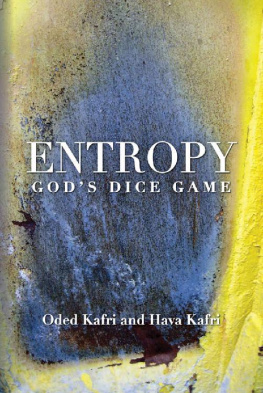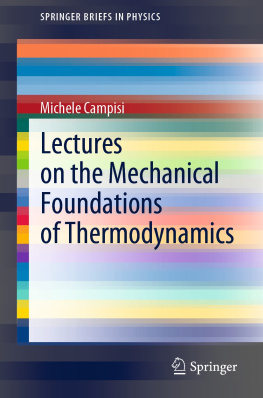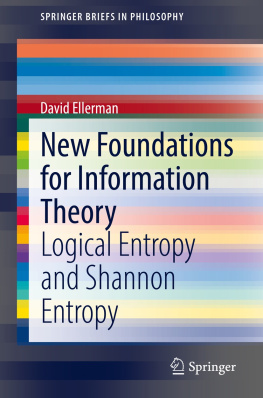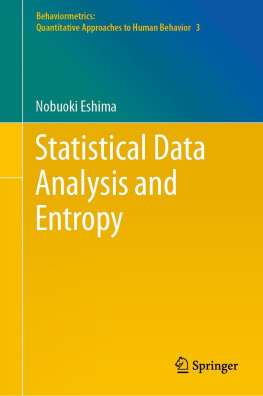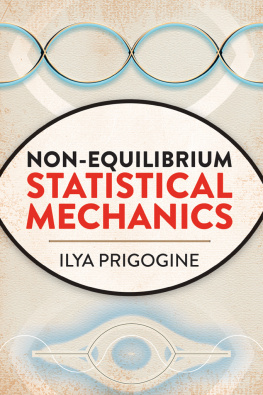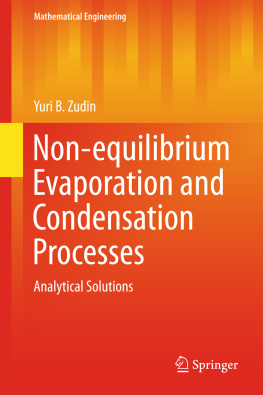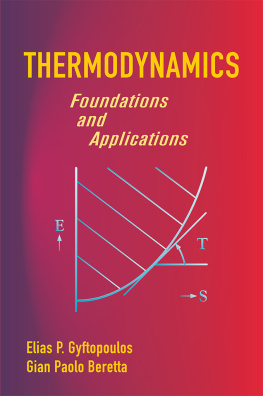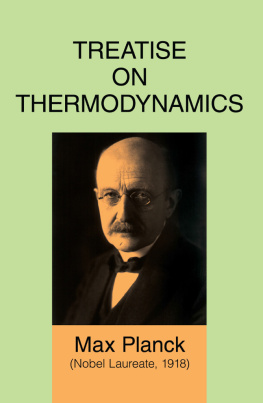Phil Attard - Entropy Beyond the Second Law: Thermodynamics and Statistical Mechanics for Equilibrium, Non-equilibrium, Classical, and Quantum Systems
Here you can read online Phil Attard - Entropy Beyond the Second Law: Thermodynamics and Statistical Mechanics for Equilibrium, Non-equilibrium, Classical, and Quantum Systems full text of the book (entire story) in english for free. Download pdf and epub, get meaning, cover and reviews about this ebook. City: Bristol, year: 2018, publisher: IOP Publishing, genre: Science. Description of the work, (preface) as well as reviews are available. Best literature library LitArk.com created for fans of good reading and offers a wide selection of genres:
Romance novel
Science fiction
Adventure
Detective
Science
History
Home and family
Prose
Art
Politics
Computer
Non-fiction
Religion
Business
Children
Humor
Choose a favorite category and find really read worthwhile books. Enjoy immersion in the world of imagination, feel the emotions of the characters or learn something new for yourself, make an fascinating discovery.
- Book:Entropy Beyond the Second Law: Thermodynamics and Statistical Mechanics for Equilibrium, Non-equilibrium, Classical, and Quantum Systems
- Author:
- Publisher:IOP Publishing
- Genre:
- Year:2018
- City:Bristol
- Rating:3 / 5
- Favourites:Add to favourites
- Your mark:
Entropy Beyond the Second Law: Thermodynamics and Statistical Mechanics for Equilibrium, Non-equilibrium, Classical, and Quantum Systems: summary, description and annotation
We offer to read an annotation, description, summary or preface (depends on what the author of the book "Entropy Beyond the Second Law: Thermodynamics and Statistical Mechanics for Equilibrium, Non-equilibrium, Classical, and Quantum Systems" wrote himself). If you haven't found the necessary information about the book — write in the comments, we will try to find it.
The Second Law of Thermodynamics, that entropy increases, is arguably the most fundamental law of nature. And yet for some, entropy itself is a mystery, the cause of confusion and misunderstanding. How can it be that something so fundamental and universal be so hard to grasp? How can it have happened that thoughtful people appreciate the significance and universal applicability of the Second Law without understanding the nature of entropy, its sole concern? This book presents a coherent formulation of all aspects of thermodynamics and statistical mechanics with entropy as the unifying theme. This includes formulating equilibrium theory from first principles, and explaining the role of the Second Law in establishing the equilibrium state. It also includes establishing the foundations of non-equilibrium theory by generalizing the concept of entropy in an appropriate way. Finally, it addresses the relationship between classical and quantum statistical mechanics by invoking the collapse of the wave function into entropy states. A secondary purpose is to increase the understanding of entropy and the Second Law, and to correct misapprehensions and errors that have arisen over the years. By consolidating these approaches into a coherent and self-contained framework, it is intended to improve the understanding of this fundamental and fascinating area of physics. Thermodynamics and statistical mechanics are such important subjects that students, academics, and researchers need to have the fundamental concepts clearly and concisely presented, as simply as possible, and as part of a unified whole. To this end, the book motivates the mathematical theorems and derivations with detailed physical explanation, applications, and concrete examples.
Phil Attard: author's other books
Who wrote Entropy Beyond the Second Law: Thermodynamics and Statistical Mechanics for Equilibrium, Non-equilibrium, Classical, and Quantum Systems? Find out the surname, the name of the author of the book and a list of all author's works by series.



